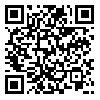پنجشنبه 6 اردیبهشت 1403
دوره 1، شماره 2 - ( 4-1394 )
جلد 1 شماره 2 صفحات 36-30 |
برگشت به فهرست نسخه ها
Download citation:
BibTeX | RIS | EndNote | Medlars | ProCite | Reference Manager | RefWorks
Send citation to:



BibTeX | RIS | EndNote | Medlars | ProCite | Reference Manager | RefWorks
Send citation to:
Azarashk A, Hatamian H, Jomehri F, Ahadi H. A Comparative Study of Five Personality Factors among Employed and Unemployed People . Caspian J Neurol Sci 2015; 1 (2) :30-36
URL: http://cjns.gums.ac.ir/article-1-51-fa.html
URL: http://cjns.gums.ac.ir/article-1-51-fa.html
A Comparative Study of Five Personality Factors among Employed and Unemployed People . مجله علوم اعصاب کاسپین. 1394; 1 (2) :30-36
چکیده: (4631 مشاهده)
Background: Professional identity is a part of human identity and career has a beneficial impact on psychological health. The importance of personality in job achievement has also been increasingly concerned in economics.
Objective: To compare the Big Five personality factors between employed and unemployed persons.
Materials and Methods: This study was an applied cross sectional analytic descriptive research of a comparative type which was conducted from January 2012 to March 2012. The sample size was thirty in each group of employed and unemployed subjects, chosen randomly from male population of a city in the North of Iran with purposive sampling method. Age and education level of subjects were controlled according to labor market conditions. For collecting data, the NEO inventory was used five factors of personality can be assessed by which. The data were analyzed by SPSS software version 19 through descriptive and inferential statistics using independent t-test.
Results: A total of thirty employed and 30 unemployed men in the age range of 20-50 years participated in the study.
The neuroticism score was higher in unemployed persons (p = 0.001). The openness score resulted in no significant difference between employed and unemployed people (p = 0.96). The scores of extroversion, agreeableness and conscientiousness were significantly higher among employed people rather the unemployed ones (p = 0.01, 0.001 and 0.01, respectively).
Conclusion: Personality traits except openness have significant relationship with employment, neuroticism may have a negative relationship, and the other personality traits maybe in the positive relationships with employment.
| بازنشر اطلاعات | |
 | این مقاله تحت شرایط Creative Commons Attribution-NonCommercial 4.0 International License قابل بازنشر است. |


